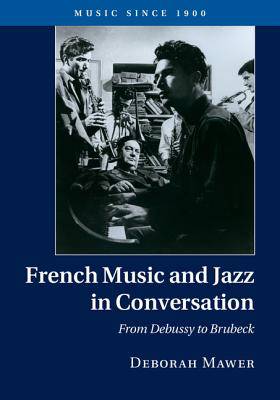
- Afhalen na 1 uur in een winkel met voorraad
- Gratis thuislevering in België vanaf € 30
- Ruim aanbod met 7 miljoen producten
- Afhalen na 1 uur in een winkel met voorraad
- Gratis thuislevering in België vanaf € 30
- Ruim aanbod met 7 miljoen producten
Zoeken
€ 172,95
+ 345 punten
Uitvoering
Omschrijving
French concert music and jazz often enjoyed a special creative exchange across the period 1900-65. French modernist composers were particularly receptive to early African-American jazz during the interwar years, and American jazz musicians, especially those concerned with modal jazz in the 1950s and early 1960s, exhibited a distinct affinity with French musical impressionism. However, despite a general, if contested, interest in the cultural interplay of classical music and jazz, few writers have probed the specific French music-jazz relationship in depth. In this book, Deborah Mawer sets such musical interplay within its historical-cultural and critical-analytical contexts, offering a detailed yet accessible account of both French and American perspectives. Blending intertextuality with more precise borrowing techniques, Mawer presents case studies on the musical interactions of a wide range of composers and performers, including Debussy, Satie, Milhaud, Ravel, Jack Hylton, George Russell, Bill Evans and Dave Brubeck.
Specificaties
Betrokkenen
- Auteur(s):
- Uitgeverij:
Inhoud
- Aantal bladzijden:
- 322
- Taal:
- Engels
- Reeks:
Eigenschappen
- Productcode (EAN):
- 9781107037533
- Verschijningsdatum:
- 12/01/2015
- Uitvoering:
- Hardcover
- Formaat:
- Genaaid
- Afmetingen:
- 170 mm x 246 mm
- Gewicht:
- 839 g

Alleen bij Standaard Boekhandel
+ 345 punten op je klantenkaart van Standaard Boekhandel
Beoordelingen
We publiceren alleen reviews die voldoen aan de voorwaarden voor reviews. Bekijk onze voorwaarden voor reviews.











